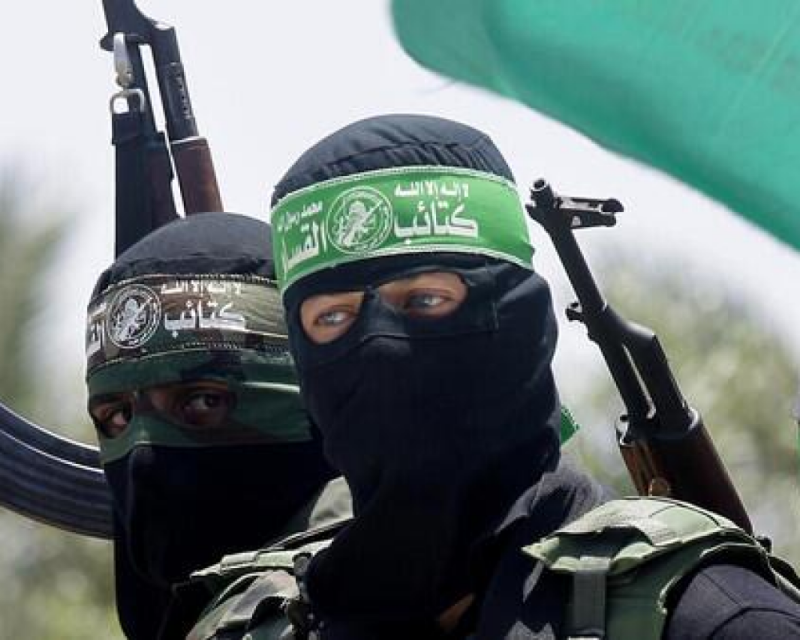The recent Al-Aqsa Flood battle has brought attention to the "Shadow Unit" of the Izz ad-Din al-Qassam Brigades, which is responsible for guarding prisoners. So, what about this unit?
The Shadow Unit is one of the units of the Izz ad-Din al-Qassam Brigades and was established with the aim of holding Israeli prisoners and keeping them away from the eyes of Tel Aviv's leaders, in order to achieve the strategic goals of the Qassam leadership of exchanging them for Palestinian prisoners. The operation involving Gilad Shalit is the most famous action associated with this unit.
#### Background
The issue of prisoners in Israeli jails holds a special significance for the al-Qassam Brigades, which regards their liberation as a "priority." They state that the Shadow Unit was "originally established for operational considerations in the context of breaking the shackles of Palestinian prisoners in enemy jails," affirming that its work will not end until "the occupation’s jails are emptied of prisoners."
#### Formation
The Shadow Unit was established in 2006, becoming one of the most crucial units operating within the al-Qassam Brigades, the military wing of the Hamas movement. This unit serves as a special task force that works to "secure" Israeli prisoners captured by various brigades and then begins its role in hiding these prisoners from the Israeli army and its agents in Mossad.
According to Hamas's website, members of the Shadow Unit are chosen from all brigades and combat formations of the al-Qassam Brigades based on precise criteria, undergoing numerous direct and indirect tests. The al-Qassam Brigades revealed this unit in January 2016 when they broadcast a video featuring new images of Israeli soldier Shalit, whom the Shadow Unit contributed to capturing and retaining.
#### Selection of Unit Members
The process for selecting members of the Shadow Unit and their specifications involves all brigades and combat formations of the al-Qassam Brigades, according to precise criteria described as a "golden scale." They undergo multiple tests, both direct and indirect, and receive special training to enhance their security and military capabilities. The criteria and specifications include:
- A deep commitment to the Palestinian cause and the resistance project.
- A high willingness to sacrifice and exhibit selflessness.
- A high degree of intelligence and good judgement in crisis and emergency situations.
- A strong ability to sense danger.
- A personality characterized by secrecy, discretion, and limited speech.
- Possession of security and military competencies.
#### Operations
Little is known about the operations of this unit due to its secretive nature. The only disclosure about it came early in 2016 when al-Qassam Brigades’ commander Mohammed Deif (Abu Khaled) allowed limited information about this security unit, which was found to be behind the retention of prisoner Gilad Shalit and prevented Israel from reaching or freeing him. Shalit was held for over five years before being released in the "Wafa al-Ahrar" prisoner exchange deal for the release of 1,050 prisoners from Israeli jails in October and December 2011.
Since 2014, the Shadow Unit has been assigned the task of holding four Israeli prisoners, including two soldiers captured by the al-Qassam Brigades during the third Israeli war on Gaza in 2014, which the resistance refers to as "the Battle of the Consumed Yield," along with two others who entered Gaza under mysterious circumstances and fell into "Qassam's grip."
During the year 2023, in the Al-Aqsa Flood operation, the task of the Shadow Unit included overseeing over 200 prisoners, comprising women, soldiers, men, children, and others such as Thai workers, to hide them until the first ceasefire, after which they supervised their handover to the International Red Cross.
#### Treatment of Prisoners
The principle governing the treatment of prisoners in this unit focuses on "treating Israeli prisoners with dignity and respect according to Islamic rulings, and providing them with complete physical and moral care, taking into consideration how Israel treats the mujahideen prisoners."




